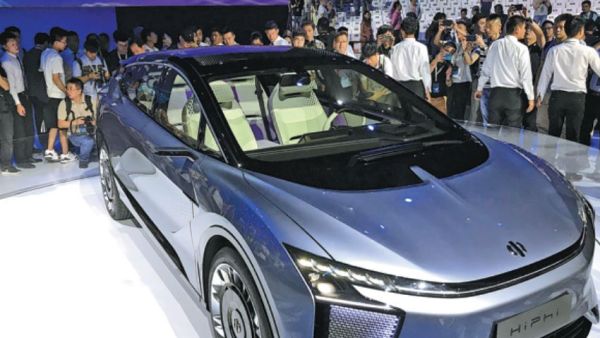Beijing blasts EU probe into Chinese EVs, warns of disrupting China-EU trade
ALBAWABA – The European Commission launched a probe into Chinese subsidies for electric vehicles (EV) on Wednesday which Beijing blasted on Thursday as protectionist and warned it would negatively impact economic and China-EU trade relations.
Previously, the United States (US) also enforced measures against Chinese exports, by imposing special tariffs among other things.
On Wednesday, EU commission President Ursula von der Leyen accused China of flooding global markets with low-priced EVs, bolstered by huge state subsidies.
China’s EVs are relatively much more affordable than European counterparts. Von der Leyen said the only explanation is that the cars’ low prices are artificially supported by massive subsidization.
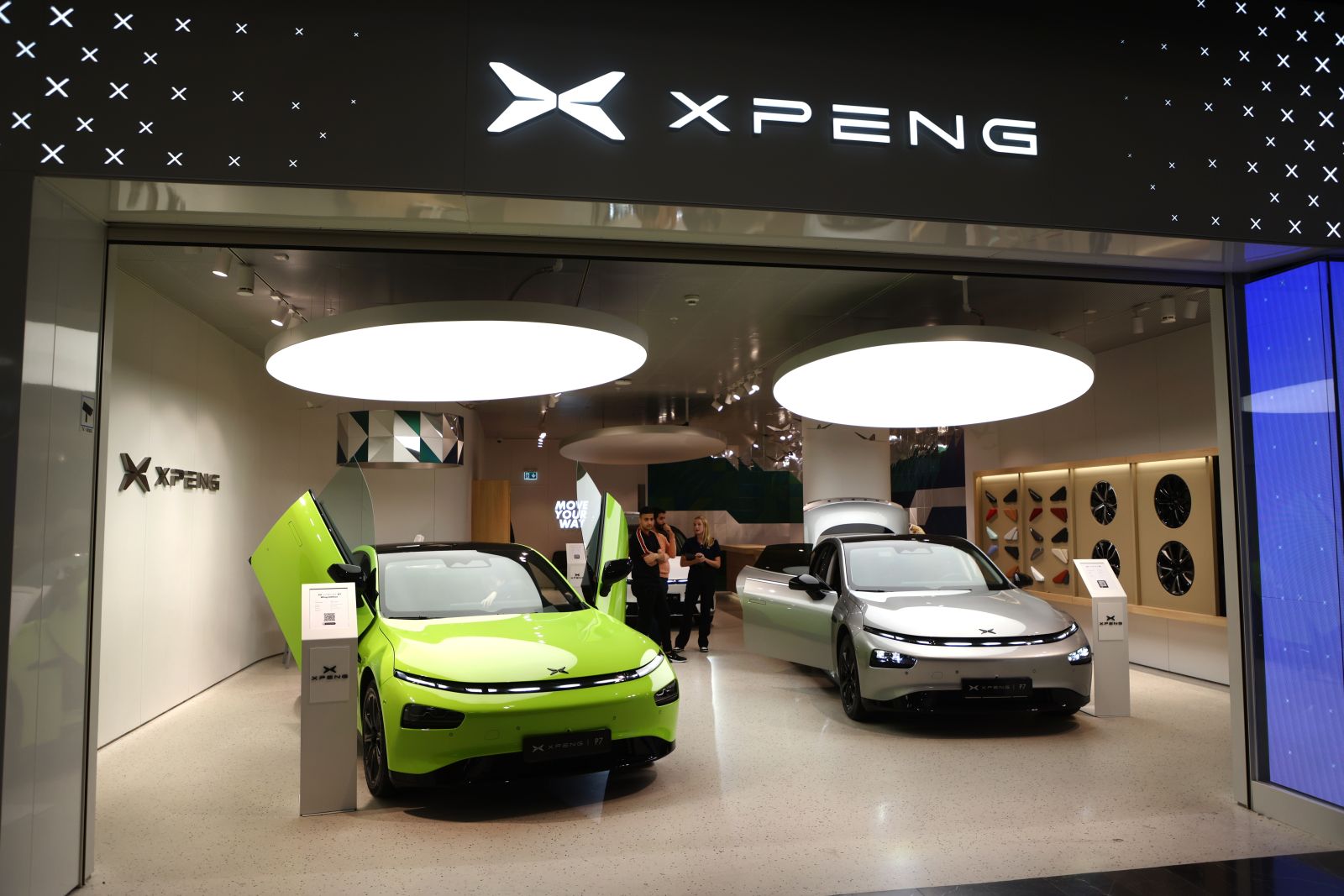
Shares of Chinese EVs in EU market are rising but not necessarily at a pace that warrants risking China-EU trade relations - Shutterstock
The probe, which could result in punitive tariffs, has prompted analyst warnings of retaliatory action from Beijing as well as pushback from Chinese industry executives.
China’s industry leaders have reaffirmed, as reported by Reuters, that the sector's competitive advantage was not due to subsidies.
The investigation "is a naked protectionist act that will seriously disrupt and distort the global automotive industry and supply chain, including the EU, and will have a negative impact on China-EU economic and trade relations," China's Ministry of Commerce said in a statement.
"China will pay close attention to the EU's protectionist tendencies and follow-up actions, and firmly safeguard the legitimate rights and interests of Chinese companies," it added.
Cui Dongshu, the secretary general of the China Passenger Car Association, said on his personal WeChat account on Thursday that he was personally "strongly against" the review. He urged the EU to take an objective view of the industry's development and not to "arbitrarily use" economic or trade tools.
The price of China-made cars exported to Europe is generally almost double the price they sell for in China, he added.
Why is Europe risking China-EU trade relations?
From a market perspective, the European Commission’s probe makes very little sense. Especially considering that China is the EU’s top trade partner.
Chinese EVs are not sweeping through the European market, according to Bloomberg, and they do not really constitute a threat to European EV makers. At least not right now.
While they are making some headway in Europe, Chinese EV sales pale in comparison to market leaders like Volkswagen AG, Tesla Inc. and Stellantis NV.
Geely ranked only seventh in pure EV sales in the EU in the first half of 2023, according to Bloomberg NEF data, shipping only 37,000 units — less than a quarter of market leader Volkswagen.
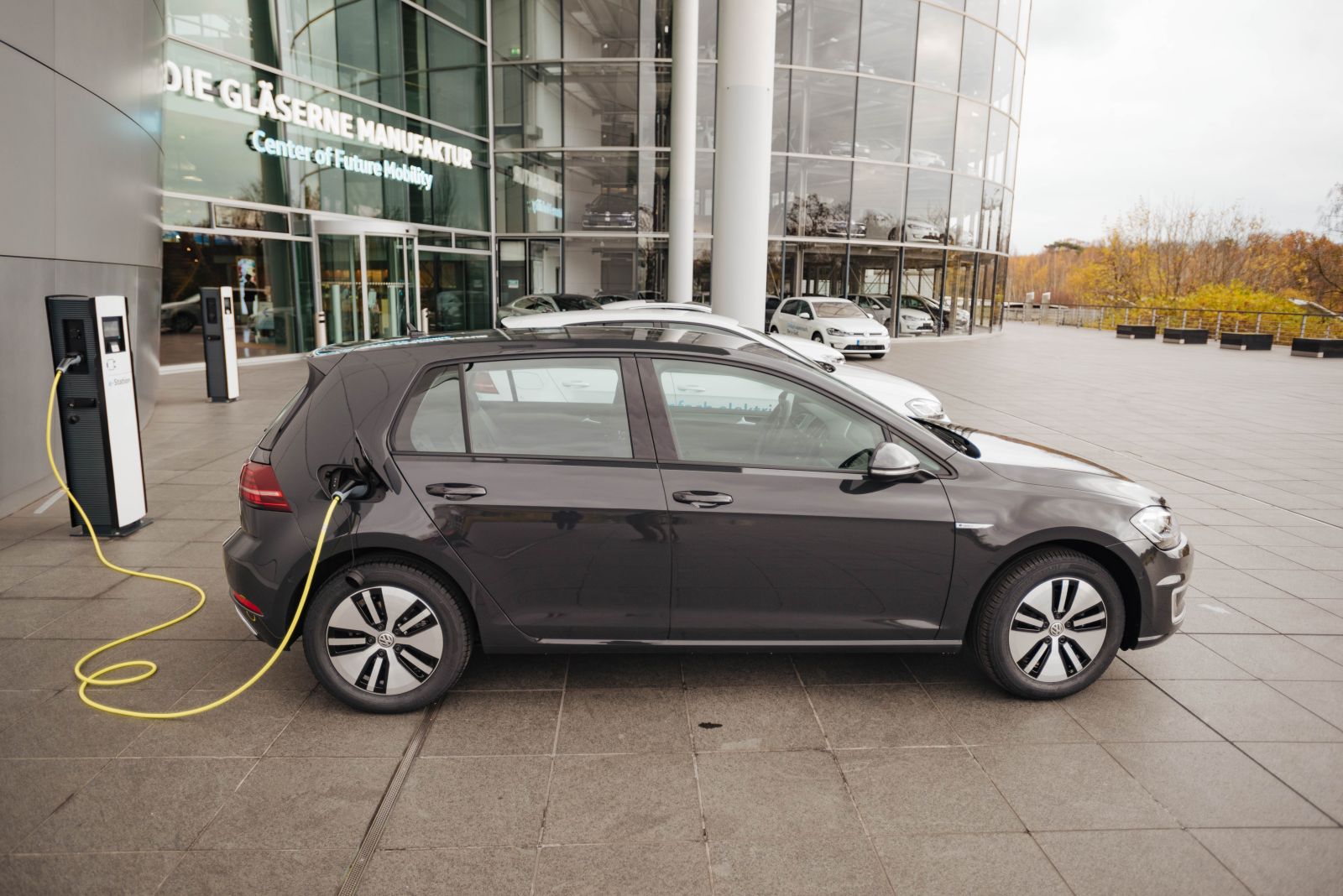
The commission is risking China-EU trade even though Chinese EVs do not pose a current threat to European EV makers - Shutterstock
According to Reuters, EU officials believe Chinese EVs are undercutting the prices of local models by about 20 percent in the European market.
The European Commission said China's share of EVs sold in Europe has risen to 8 percent and could reach 15 percent in 2025.
In 2022, 35 percent of all exported electric cars originated from China, 10 percentage points higher than the previous year, according to US think-tank Center for Strategic and Internal Studies (CSIS).
Most of the vehicles, and the batteries they are powered with, were destined for Europe where 16 percent of batteries and vehicles sold were made in China in 2022, the center said.
However, the single largest exporter from China is US giant Tesla, CSIS data showed. It accounted for 40.25 percent of EV exports from China between January and April 2023, up from 36.5 percent in 2022.
Likewise, European EV makers also take advantage of the lower costs of manufacturing in China, forming partnerships with local automakers.
In a bid to make up lost ground in EVs, Bloomberg reported Volkswagen as saying in July it would invest $700 million in Xpeng Inc.
Likewise, Tesla has a huge factory on the outskirts of Shanghai that produced more than half of the 1.3 million EVs the US company sold globally last year, according to the New York-based news agency.
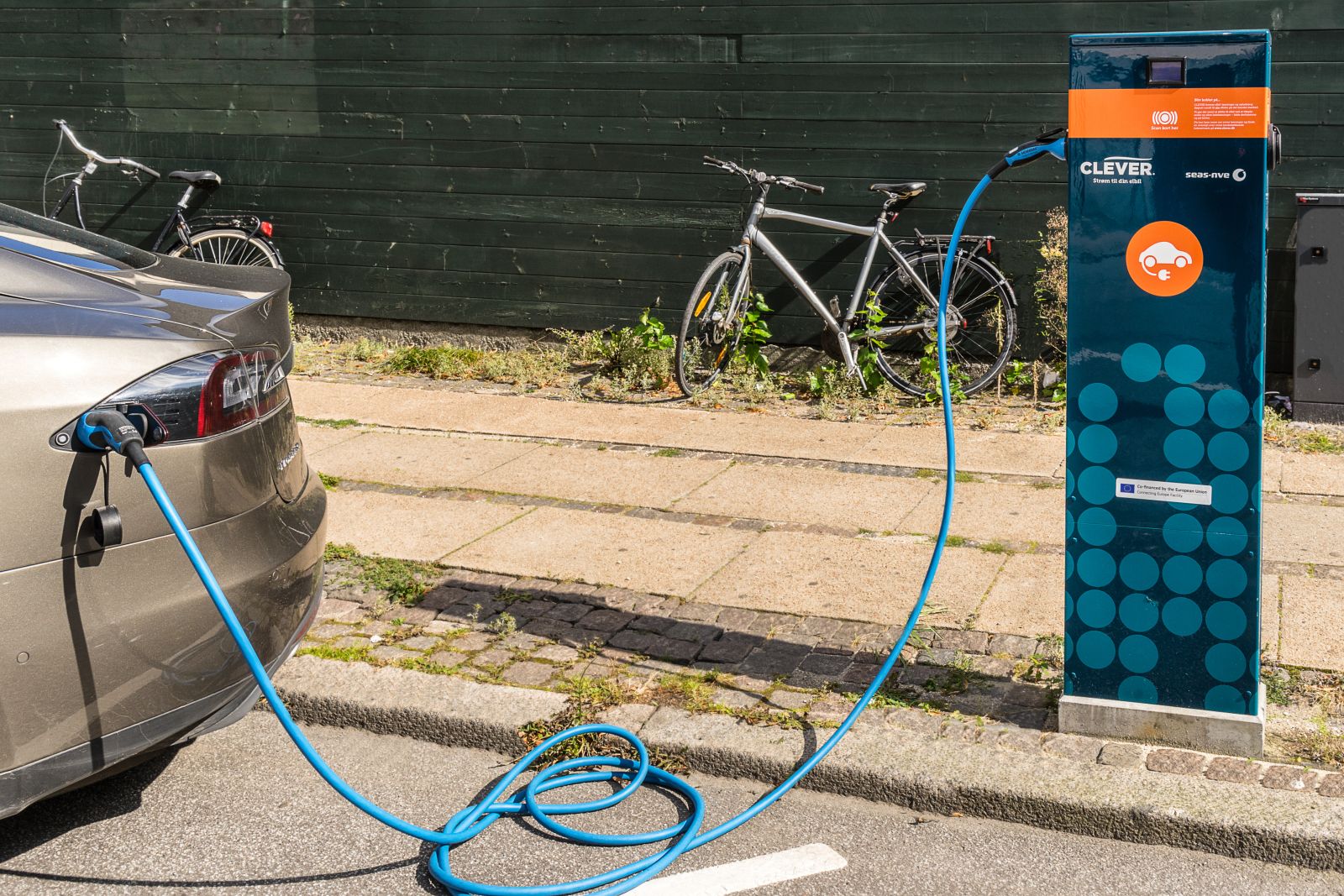
The commission is cracking down on Chinese EVs, risking China-EU trade relations, even though VW and Tesla's China operations account for a huge portion of Chinese EV exports, including to Europe - Shutterstock
The anti-subsidy probe was actually initiated by the European Commission and not from any industry complaint, Reuters confirmed.
It also comes as the bloc navigates already strained relations with China, due to the latter’s ties with Russia despite the war in Ukraine.
In his meeting with von der Leyen on the sidelines of the G20 Summit in New Delhi on Saturday, Chinese Premier Li Qiang urged the bloc to provide a non-discriminatory environment for Chinese firms. He also called for stability in China-EU relations as a "hedge" against global uncertainties.
Apparently, the EV probe will set the agenda and tone for bilateral talks ahead of the annual China-EU Summit, to take place before year-end. The summit will focus on EU demands for wider access to the Chinese market and rebalancing the China-EU trade relationship, which Brussels described as "imbalanced".
Implications of the probe, so far
Some of Reuters’ analysts warned that China could respond to any duties levied by Brussels against subsidized Chinese EVs with countermeasures that could also hurt European industries.
Others noted the probe could slow capacity expansion by China’s battery suppliers. Yet, it is not expected to pose a significant risk for Chinese EV makers, as they can always turn to other growing markets, such as Southeast Asia.
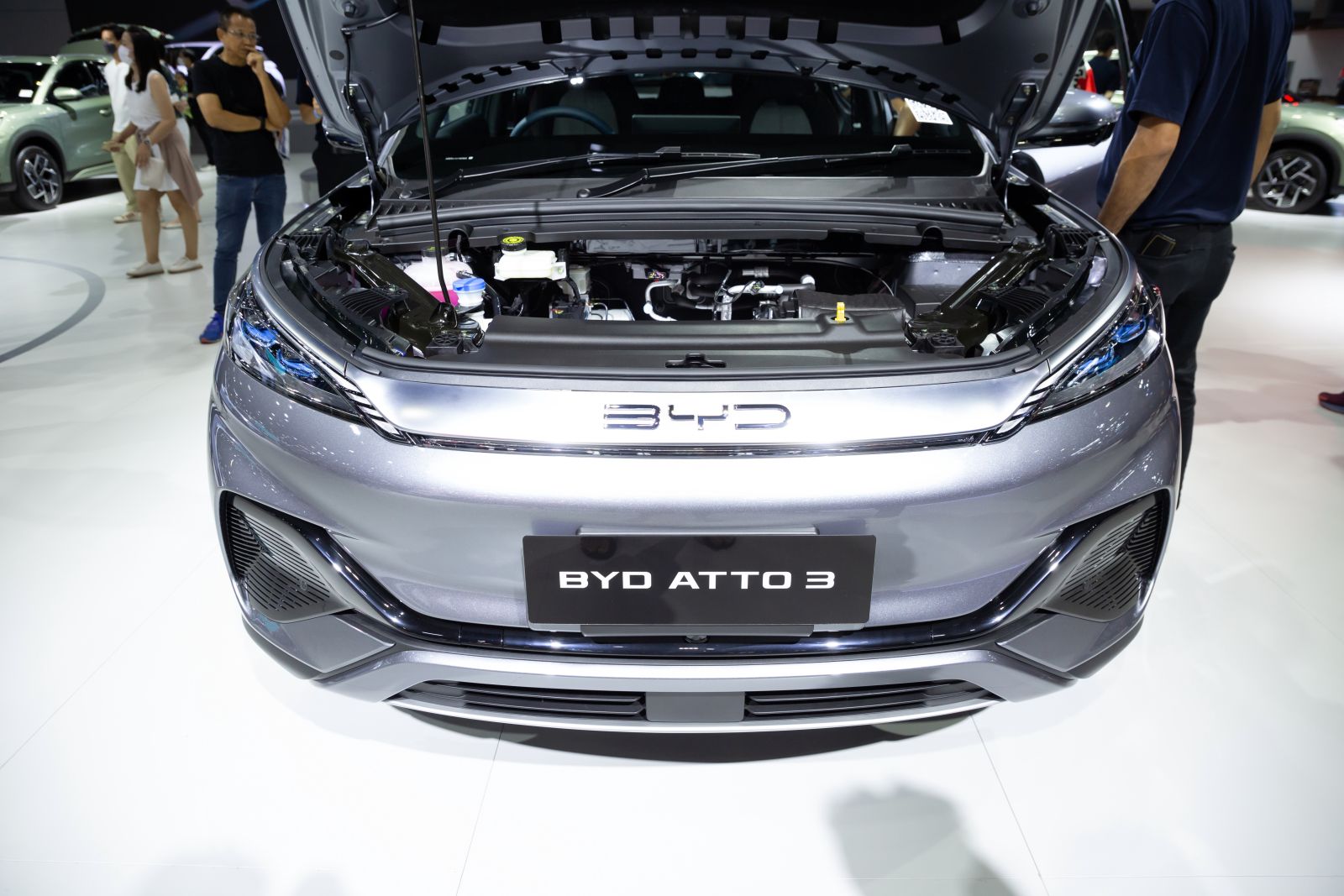
BYD ATTO 3 on display at Thailand International Motor Show 2023 Arina Muangthong Thani or Motor Expo in Bangkok, Thailand on Mar 23, 2023 - Shutterstock
The worst it could do, they argued, is hurt perceptions of Chinese EV makers as they expand abroad, Bernstein analysts said in a client note, as reported by Reuters.
Since the European Commission announced the probe, Hong Kong-listed shares of market leader BYD fell more than 3 percent, and shares of smaller rivals Xpeng and Geely Auto dropped 0.6 percent, while Nio slid 2 percent.
Shanghai-listed shares of state-owned car giant SAIC, whose MG brand is the best-selling Chinese-made brand in Europe, fell as much as 3.4 percent. And the Shenzhen-listed shares of battery maker CATL fell more than 1 percent.
Chinese manufacturers have been accelerating export efforts as slowing consumer demand in China exacerbates production overcapacity, Reuters reported.
The Chinese Chamber of Commerce to the EU on Wednesday also denounced the probe, saying that the sector's competitive advantage was not due to subsidies.


